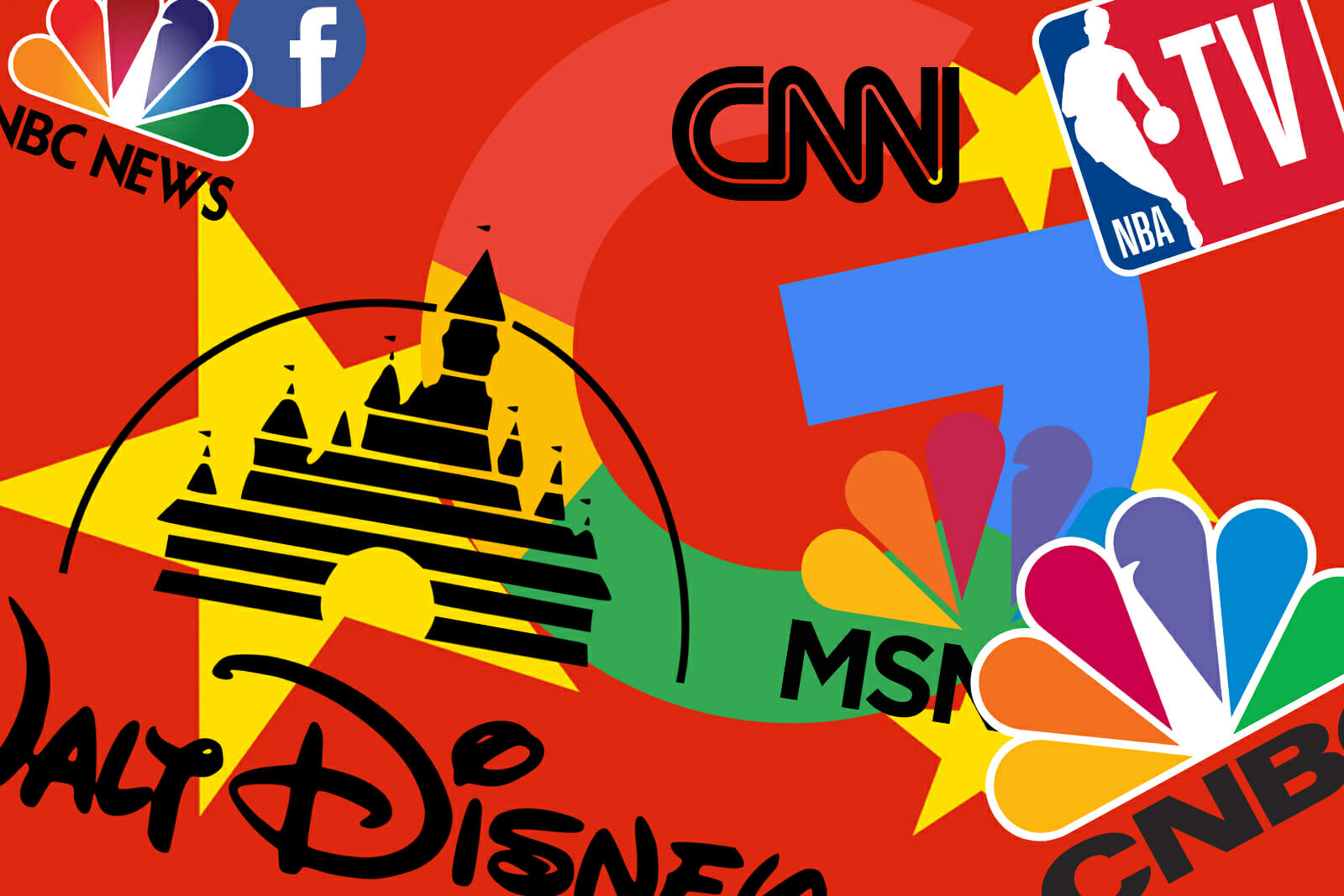
Media
China’s Communist Party and its American Media Enablers
China has a confederate in its effort to deflect attention from its mishandling of the outbreak of COVID-19: U.S. media.
American media cooperated by repeating uncritically Beijing’s reports that it bears no responsibility for the spread of COVID-19. In fact, China’s state-controlled television has made U.S. media reporting part of its internal propaganda campaign.
Beijing’s propaganda war has two fronts: internal and external. Internally, the Chinese Communist Party (CCP) tells its subjects that U.S. media is acknowledging its innocence for the COVID-19 outbreak. Externally, China can leverage U.S. media reports as part of its effort to downplay its failures and promote its “expertise” to help other afflicted nations – a soft power win.
And to ensure that American media takes heed, at a recent meeting with Comcast corporate executives, Chinese Consul General Huang Ping said, “China’s prevention and control practices have earned valuable time and experience for other countries…We hope that the NBC [which is owned by Comcast] and other U.S. media will objectively and fairly report China’s efforts to control the epidemic.”
Part of the American media’s approach is its animus to U.S. President Donald Trump but also, as the man said, “It’s not personal. It’s strictly business.” And what a business it is…
Much of major U.S. media is controlled not by media corporations, but entertainment-media corporations, and it’s the entertainment that gives the Chinese Communist Party leverage.
To understand the media’s vulnerabilities, you should know who owns what:
- NBC News, CNBC, and MSNBC are owned by Comcast which also owns Universal Pictures which is a minority partner to five Chinese state-owned companies in the Universal Beijing Resort. The resort will feature attractions from Universal properties, like Harry Potter and Jurassic World, and licensed properties from other American entertainment companies, such as Warner Brothers and Paramount Pictures, giving Beijing a single point of pressure on several U.S. media firms. In 2016, Universal and China’s Perfect World Pictures announced a $500 million co-financing deal of a slate of films.
- ABC News is owned by The Walt Disney Company which also owns Walt Disney Studios and participates in the Shanghai Disney Resort, where it is a 43% partner to three Chinese companies controlled by the government of the city of Shanghai. The resort saw 11 million visitors in its first year of operation and is a major contributor to Disney’s earnings. Disney also owns 80% of ESPN which shied away from covering the story of Houston Rockets General Manager Daryl Morey’s tweet supporting Hong Kong demonstrators and the ensuing controversy.
- CBS News is owned by ViacomCBS which also owns Paramount Pictures and ViacomCBS Networks International, the latter of which produces MTV and Nickelodeon for the Chinese market.
- CNN is owned by AT&T’s WarnerMedia which controls NBA TV. NBA TV had its broadcasts in China suspended in 2019 after the Daryl Morey’s controversy, which prompted the league and its leading players to distance themselves from the protests. WarnerMedia is also a 49% participant in Flagship Entertainment, a film production company located in Hong Kong; the other major participant is venture capital firm China Media Capital.
At just over $9 billion, China is the world’s second-biggest film market, behind North America. It is projected to become the largest by 2025 with a projected $22 billion in sales and is key to future revenue growth in Hollywood. Recently, several big-budget American films had bigger openings in China than in the U.S.
The question is, do the news divisions of these entertainment-media companies trim their coverage to accommodate the firms’ other interests? Well, Universal Parks and Resorts Chairman and CEO Tom Williams said, “You don’t start talking about the leadership in China. You would be crazy to bring up Hong Kong, Taiwan…You just focus on what you are trying to do.” That’s understandable if you’re just installing the whirling teacups ride, but would NBC News report a story that damaged the prospects for Mr. Williams’ two-decade project?
John Fund at the National Review cataloged the studios’ accommodation of China, from removing any reference to Taiwan in the Tom Cruise vehicle Top Gun: Maverick, to inserting dialogue in Looper to describe China as the country of the future. He notes the studios are repeating their appeasement of Hitler’s regime in the 1930s when they agreed not to depict Nazis in a bad light. At least the Chinese aren’t asking Hollywood to do anything it hasn’t already tried.
Senator Ted Cruz (R-TX) is pushing back against censorship by U.S. studios (for the Chinese market) by introducing the “The Stopping Censorship, Restoring Integrity, Protecting Talkies Act” or SCRIPT Act. The bill will prohibit Defense Department technical assistance to any film unless the filmmakers promise not to censor the film; assistance to any film co-produced with a Chinese company subject to Chinese censorship; and assistance to studios that have recently censored their films to gain access to China’s market.
Entertainment-media companies will excuse their accommodation with the Chinese Communist Party with a sigh and “needs must when the Devil drives.” This has to do with the bottom line, sure, but China probably gave it a jolt by expelling reporters from The New York Times, The Wall Street Journal, Voice of America, and Time in retaliation for limits the Trump administration placed on Chinese reporters at state-run media outlets in the U.S. The hint was no doubt “so intended and so taken” by the remaining entertainment-media operations who knew what to do when COVID-19 ambled into our lives.
One American media company that hasn’t suffered in China is Bloomberg News which acted the good soldier by silencing a reporter who uncovered corruption at the highest levels of China’s government. “Mini Mike” then bought himself additional political insurance by refusing to call Chinese President Xi Jinping a dictator, saying the Chinese people “don’t seem to want” a democracy.
Media companies without the property portfolio of Disney or Paramount also sought to draw close to the communists. In 2017, the Associated Press, CNN, Fox, and Google were among the attendees at the Global Media Summit organized by state-owned networks China Central Television and the China Global Television Network, the latter of which the U.S. Department of Justice named a “foreign agent” in 2019. These media companies aren’t concerned about physical assets so much as a physical presence but the question remains how that concern affects editorial judgment when the consequences will be more severe than a tweet from Donald Trump.
CNN should be comfortable making that call. In 2003, Eason Jordan, then CNN’s chief news executive, admitted the network didn’t fully report the atrocities of the Saddam Hussein regime in order to protect its local staff.
In the intervening two decades virtual presence has become as important as a physical presence, so new accommodations are made. YouTube, owned by Google, deletes phrases critical of the CCP and recently demonetized a Chinese-American blogger who posted a video discussing the origin of COVID-19. Twitter is banned in China but the site is lax in removing Chinese propaganda, maybe to demonstrate to Beijing it will accommodate the government if allowed into China, or it may just be following the lead of the major media outlets.
The winner, though, is Facebook founder Mark Zuckerberg, who asked China’s Xi Jinping to give his newborn child an honorary Chinese name. Xi wisely demurred and I had to sympathize with the Commie tyrant.
American entertainment-media corporations ostensibly have private sector partners in China, but there is no private property in China: you are the custodian of assets in your name as long as the government wills it. The real partner is the state, and above the state is the Communist Party. The corporations are at a distinct disadvantage as their partner has the will to power, a motivating ideology, the long term view (“The Hundred-Year Marathon”), and the resources and prerogatives of the state.
The thirty-year project to promote China as a responsible member of the international community was promoted by America’s best and brightest and as a result China received vast amounts of foreign direct investment (over $136 billion in 2019 alone). The Middle Kingdom’s promoters will be strained to explain how slave labor camps filled with Muslim Uyghurs, the crackdown against pro-democracy protestors in Hong Kong, and concealing the origin of COVID-19, even as it killed thousands of Chinese, demonstrates responsible behavior. Exhibit A is Henry Kissinger’s Wall Street Journal op-ed on COVID-19 that steams through eight hundred words without once mentioning China.
China is trying to change the narrative on the origin of COVID-19 and hopes to use as leverage the significant local investments by U.S. entertainment-media corporations to deliver to it witting (or unwitting) media enablers, potential influencers in plain sight.
